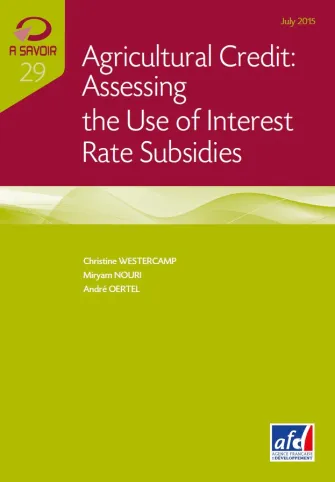Share the page
Agricultural Credit: Assessing the Use of Interest Rate Subsidies
Published on

Since the beginning of the 20th century, interest rate subsidies have been one of the tools used all around the world for developing agriculture, especially by major agricultural countries such as France, the United States, and Brazil. However, a general consensus against their use now exists among donors, despite the fact that all of these latter still use them more or less directly. In each donor institution, there is debate between the “financial” faction, who oppose such subsidies, and the “agronomist” faction, who cannot effectively organize agricultural development projects that rely solely on rural financial markets, as the latter are insufficiently developed and usually offer exit interest rates that are prohibitively high for financing investments in infrastructure. The issue of interest rate subsidies is moreover stirring up intense discussion within international bodies, in particular the OECD Development Assistance Committee (DAC). This study takes a critical look at the consensus against interest rate subsidies and examines the arguments for and against them.
Useful Information
-
Authors
-
André OERTEL, Christine WESTERCAMP, Myriam NOURI
-
Coordinators
-
Aurélie CHEVRILLON, Mathilde GASPERI
-
Edition
-
29
-
Number of pages
-
176
-
ISSN
-
2105-553X
-
Collection
-
To Know
-
Other languages
